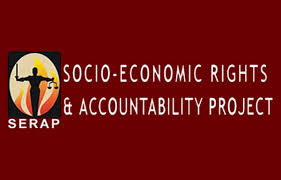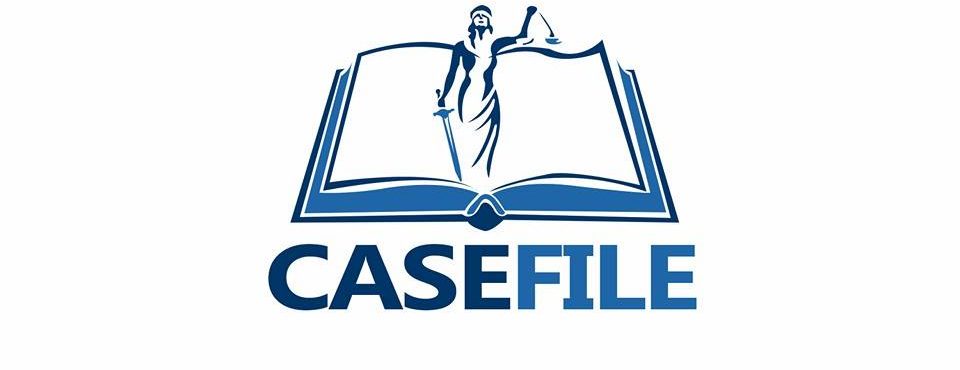The Socio-Economic Rights and Accountability Project, SERAP, has asked the government of President Muhammadu Buhari to obey all the judgements the organisation secured against it with immediate effect.

It also added that the Federal Government to take steps to raise money to fund the budget, reduce the growing level of borrowing, and address the escalating rule of law crisis in the country.
The organisation threatens that if the Federal government failed to obey the judgement, it may be forced to seek other means legally possible to ensure compliance.
“Unless the judgements are immediately implemented, SERAP will consider pursuing contempt proceedings against the Federal Government in national courts, and international sanctions against the administration for its persistent disobedience of court judgements.”
According to the organisation’s Kolawole Oluwadare, SERAP Deputy Director, “among the several judgements the Buhari administration has failed to obey is the judgement by the ECOWAS Court of Justice in Abuja, which awarded N30m as compensation for the ill-treatment of journalist Agba Jalingo, who faced trumped-up and politically motivated charges of treason.”
A Senior Advocate of Nigeria, Femi Falana SAN, who presented SERAP Law Report to the public at the media briefing organised by SERAP in collaboration with the MacArthur Foundation, USA, said: “We are surprised that the Buhari administration took a swipe at SERAP for going to court to challenge acts of corruption and official impunity. In any country that professes to practice rule of law, it is height of ‘primitivity’ for government to challenge the act of going to court by the citizens.”
“Stating further, Falana said, “It is quite ironical that those who have protested against misrule and impunity in the past are now in bed with those in government and clamps down on attempt protest by the citizens.”
Falana also said: “SERAP has embarked on public interest litigation in order to promote accountability and transparency in line with the tenets of the rule of law and constitutionalism.
He said, “The publication of SERAP Law Report could not have come at a better time than now that anti-democratic forces are bent on imposing fascism on the country.”
SERAP also said, “The failure and/or refusal to enforce and implement legally binding judgements of court is entirely inconsistent and incompatible with Nigeria’s international human rights obligations.”
“Obedience to the rule of law by all citizens but more particularly those who publicly took oath of office to protect and preserve the Constitution is a desideratum to good governance and respect for the rule of law. In a constitutional democracy like ours, this is meant to be the norm,” it added.
It added that “The implementation of these judgements will be a special moment for the government’s anti-corruption agenda and the supremacy of the rule of law in Nigeria, as it would go a long way in protecting the integrity of our legal system.”
“Other high-profile judgements obtained by SERAP that the Federal Government is refusing and/or failing to obey include the following: The first of such judgements is the judgement by Honourable Justice Hadiza Rabiu Shagari delivered on 5 July, 2017 ordering the Federal Government to tell Nigerians about the stolen asset it allegedly recovered, with details of the amounts recovered.”
“The second judgement, by Hon. Justice Mohammed Idris, on 26 February, 2016 ordered the Federal Government to publish details on the spending of stolen funds recovered by successive governments since the return of democracy in 1999.”
“The third judgement, by Hon. Justice Oguntoyinbo on 26 November, 2019 ordered the Federal Government to challenge the legality of states’ pension laws permitting former governors now serving as ministers and members of the National Assembly to collect such pensions, and to recover pensions already collected by them.”
“The fourth judgement, by Hon. Justice Mohammed Idris on 28 May 2018, ordered the Federal Government to prosecute senior lawmakers suspected of padding and stealing N481 billion from the 2016 budget; and to widely publish the report of investigations into the alleged padding of the 2016 budget.”
“The fifth judgement, by Hon. by Justice Obiozor, on 4 July 2019 ordered the Federal Government to publish the names of companies and contractors who collected public funds since 1999 but failed to execute any electricity projects.”
“The sixth judgement, by the ECOWAS Court of Justice in Abuja, delivered on 19 November, 2009 ordered the Nigerian authorities to provide free and quality education to all Nigerian children without discrimination.”


